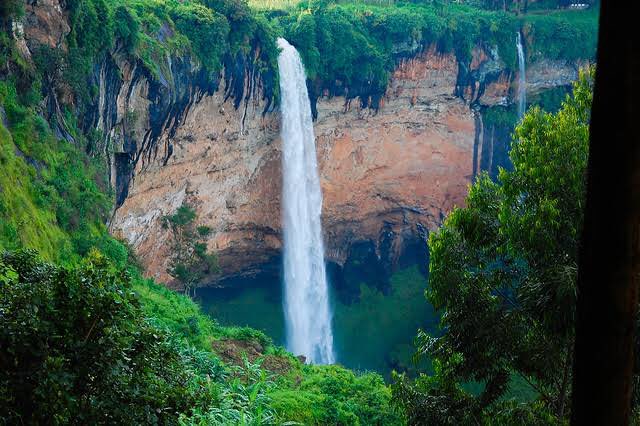
Wings of Wonder: Exploring Entebbe’s Annual Bird Festival
Entebbe's Annual Bird Festival is a must-visit for nature enthusiasts eager to witness Uganda’s rich birdlife in action. Combining guided hikes, engaging workshops, and immersive wildlife encounters, the festival offers an accessible yet vivid outdoor adventure on the shores of Lake Victoria.
Stay Hydrated Throughout Your Walk
Bring at least 1.5 liters of water for the 5-kilometer trails, as temperatures rise quickly by late morning and local vendors are limited on the paths.
Wear Sturdy, Waterproof Footwear
Trails can be damp near wetlands, so choose shoes or boots with good grip and water resistance to prevent slips and keep your feet dry.
Bring Binoculars for Better Birdwatching
Binoculars amplify your experience, allowing you to spot birds in dense foliage or at a distance without disturbing their habitat.
Start Early to Catch Peak Bird Activity
Begin hikes shortly after sunrise when bird calls intensify and species are most active before the midday heat sets in.
Wings of Wonder: Exploring Entebbe’s Annual Bird Festival
Each year, Entebbe bursts into life with the Annual Bird Festival—a vivid rally of wings, calls, and colors. Situated on the northern shores of Lake Victoria, this festival is more than a spectacle; it’s a hands-on invitation to step into the realm of Uganda’s avian riches. The event spans several days in September, the peak of bird activity when migratory and resident species collide in vibrant display.
The central stage for the festival is the Uganda Wildlife Education Centre (UWEC), where trails weave through lakeside forests and wetlands alive with motion. Walking these paths, expect moderate terrain interspersed with packed dirt and occasional muddy patches near the water. There’s roughly 5 kilometers of trail loops, with gentle elevation changes that coax you toward spectacular views without exhausting demands—ideal for casual birdwatchers and seasoned trekkers alike.
Listen closely: the forest breathes alongside you. The rustle of wings in the canopy challenges you to spot the elusive African fish eagle, while the chatter of white-faced whistling ducks dares you to follow the echo across the marsh. The festival schedule includes guided hikes, expert talks, and live demonstrations, all designed to deepen your connection with the land and its feathered inhabitants.
Preparation is key. Mornings bring cool lake breezes, prompting layered clothing and durable waterproof shoes. Carry sufficient water; the East African sun grows insistent by midday. Binoculars and a camera with a zoom lens will make the difference when the birds hold their distance but still perform their wild dances among lush foliage and shimmering reed beds.
The festival is not just an event but an educational frontier engaged in conservation and local culture. By participating, you contribute to stewardship efforts focused on protecting critical bird habitats and supporting Uganda’s eco-tourism economy. It’s an adventure that invites respect—for the landscapes, the species, and the stories they carry.
Whether you’re here for the thrill of spotting a rare papyrus gonolek or for the simple pleasure of walking through nature fiercely itself, Entebbe’s Annual Bird Festival offers a rare blend of excitement and mindfulness. It’s an experience that encourages you to listen, observe, and move carefully through space that sustains life far beyond your visit.
Nearby Trips
All Adventures
Boat Charters
Water Activities
Adventures near Entebbe, Central Region, Uganda
Discover the unique and memorable adventures that make Entebbe, Central Region, Uganda special.
Frequently Asked Questions
What is the best way to reach the Annual Bird Festival in Entebbe?
The festival is centered around the Uganda Wildlife Education Centre, easily accessible by road from Entebbe town. Public taxis and private cars are common options, with a 15-20 minute drive from the town center.
Are guided tours available during the festival?
Yes, several daily guided hikes are organized during the festival, led by knowledgeable bird experts and naturalists who provide insights into bird species and local ecology.
Are there facilities like restrooms and food vendors on site?
Basic amenities are available at the Uganda Wildlife Education Centre, including restrooms and small food stalls offering refreshments, but it's advisable to bring your own water and snacks for the trail.
Can children participate in the birdwatching activities?
Absolutely. The festival offers family-friendly activities with educational programs designed for younger participants, making it accessible and enjoyable for all ages.
What birds are commonly spotted during the festival?
Look for majestic African fish eagles, colorful grey crowned cranes, long-toed jacanas dancing across lily pads, and various migrants like the swallow-tailed bee-eater.
Is the festival suitable for people with limited mobility?
While some trails have uneven surfaces and muddy patches, the main areas near the education center offer easier access. Contact festival organizers ahead for special accommodations.
Recommended Gear
Comfortable Waterproof Hiking Shoes
To handle muddy and damp patches common near wetlands, your shoes should provide support and water resistance.
Binoculars
Essential for identifying distant or shy bird species without disturbing them.
Lightweight Rain Jacket
Bring this to stay dry during occasional rainy spells typical in September and October.
Sun Hat and Sunscreen
Protect yourself against strong equatorial sun especially during midday hikes.
Local Insights
Hidden Gems
- "Lakeside viewpoints near the Mabamba Swamp are less frequented yet reveal impressive views of migratory waterbirds."
- "Small papyrus islands scattered in the wetlands are the refuge for rare species like the shoebill stork."
Wildlife
- "Papyrus gonolek"
- "Shoebill stork"
- "African fish eagle"
- "White-faced whistling duck"
- "Long-toed jacana"
History
"The festival was launched to highlight Uganda’s vital bird habitats along Lake Victoria’s shores, drawing attention to local conservation efforts and promoting sustainable tourism in the Central Region."
